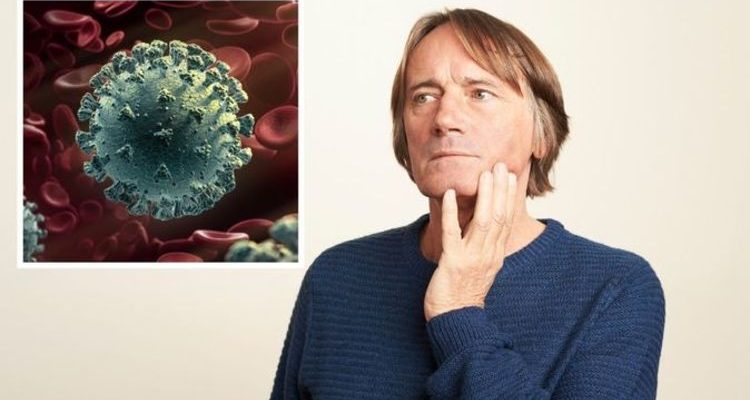Coronavirus in numbers: The latest statistics as of January 4
We use your sign-up to provide content in ways you’ve consented to and to improve our understanding of you. This may include adverts from us and 3rd parties based on our understanding. You can unsubscribe at any time. More info
The latest Government data reports new 157,758 Covid cases for yesterday. As the number is rising daily and the infection is spreading fast, being able to spot the lesser-known symptoms of the COVID-19 infection might be useful. These include a sign that could be signalling the need for “medical care”, according to a health agency.
Before the new Omicron variant emerged, the best-known symptoms of Covid were high fever, cough and loss or change to taste and smell.
However, some health bodies and researchers have been reporting other symptoms linked to coronavirus.
According to the Centers for Disease Control and Prevention (CDC), one sign of Covid you might have not heard of before is new confusion.
The health agency explains this is one of the “emergency warning signs” of Covid.

If you experience new confusion, CDC suggests you should “seek medical care immediately”.
Another source that reported confusion as a possible symptom of coronavirus is the ZOE COVID Symptom Study app.
The app was launched by health science company ZOE in collaboration with scientific analysis by King’s College London.
Their research is “the world’s largest ongoing study” of Covid with over four million users.
“Millions” of the app users have reported new confusion or mental disruption as one of the Covid symptoms.
This sign, also known as delirium, presents as two types, both indicating a change in your normal behaviour.
The ZOE COVID Study explains you can experience either hyperactive or hypoactive delirium.
How to spot new confusion?
Hyperactive delirium describes abrupt changes in the character and acting strangely. This can include agitation, distress or aggression.

Hypoactive delirium can cause a person to become withdrawn and less responsive, or even drowsy. This type can be harder to spot.
The app explains this symptom mainly occurs in older people with coronavirus.
Around 20 percent of adults aged over 65 years have reported this symptom, while 15 percent of those aged between 16 to 65 experienced delirium.
Although delirium might be a warning sign of Covid, it could also be signalling a variety of different health conditions so you should seek medical help, the NHS adds.

What are the symptoms of Omicron?
The new Covid variant, believed to have originated in southern Africa, can also cause symptoms different from the original three.
Based on the reports from South Africa, the new symptoms linked to Omicron include:
- Scratchy throat
- Mild muscle aches
- Extreme tiredness
- Dry cough
- Night sweats.
If you think you have any symptoms of coronavirus, you have to self-isolate and get a PCR test.
Source: Read Full Article
